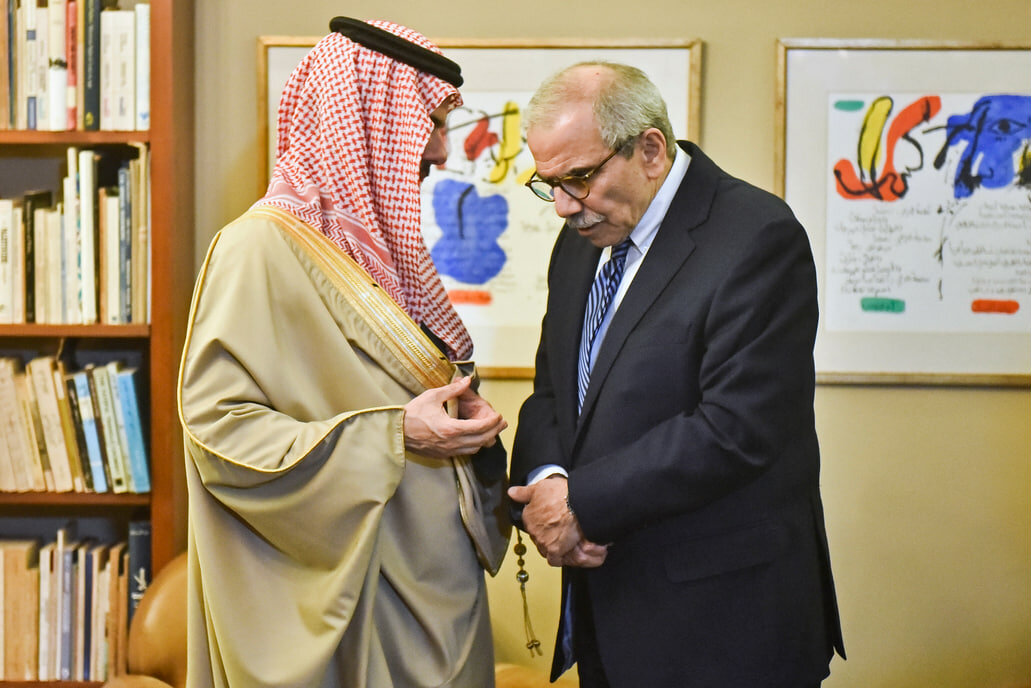Saudi team in Beirut to continue external pressure on Hezbollah

BEIRUT — In conjunction with the relentless pressure by Deputy U.S. Special Envoy to West Asia, Morgan Ortagus, on Hezbollah, Saudi Foreign Minister Prince Faisal bin Farhan visited Beirut.
Observers described Bin Farhan’s visit as a follow-up mission to reassure the international community about the progress of the “reforms” imposed on the new Lebanese authorities, most notably the disarmament of Hezbollah, and that the timeframe is not open-ended.
Bin Farhan’s visit focused on the measures being taken by the Lebanese Army in the south and north of the Litani River.
Sources claimed that Washington and Riyadh do not object to the planned dialogue between President Aoun and Hezbollah regarding the resistance’s weapons, provided that this dialogue does not serve Hezbollah’s interests.
This is in contrast to the approach by some domestic groups, such as the Lebanese Forces party under the leadership of Samir Geagea, who insist on forcibly disarming Hezbollah.
In Doha, President Aoun declared after meeting with the Emir of Qatar, Tamim bin Hamad Al Thani, that “the decision to restrict arms to the [Lebanese] state has been made, and its implementation will be through dialogue and away from force.”
President Aoun further emphasized “the need for a national security strategy that fortifies Lebanon and from which a defense strategy emerges.”
He said, “The issue of normalization [with Israel] was not raised before us,” stressing “Lebanon’s commitment to the decisions of the Beirut summit and the Riyadh conference regarding relations with Israel.”
For his part, Prime Minister Nawaf Salam, at Riyadh’s behest, visited Damascus, where he met with the head of the Hayat Tahrir al-Sham regime, Abu Muhammad al-Julani (aka Ahmad al-Sharaa). He was accompanied by Defense Minister Michel Menassa, Interior Minister Ahmad Hajjar, and Foreign Minister Youssef Raji.
Last month, the Lebanese defense minister met with his Syrian counterpart in Jeddah to discuss mechanisms for border control and crossings; prevent smuggling; demarcate land and sea borders; strengthen security coordination; and the issue of Syrian terrorists detained in Lebanese prisons and implicated in a series of terrorist attacks against the Lebanese people (See Tehran Times’ report: Julani seeking bargain with Aoun to get his terrorists freed from Lebanese prisons on Feb10th).
Despite a sharp shortage of essentials in Lebanon, the flood of Syrians fleeing into Lebanon has not stopped. “Since the beginning of April, 30,000 Syrians have entered the Akkar and North governorates,” according to a recent World Food Program report.
Most of the newly displaced are residing in collective shelters such as mosques, community halls in villages, and private homes, either on loan or shared with other families. The new displacement has led to the opening of 25 new shelters, all of which are expected to close in the next two months due to the suspension of external funding.
Upon his return from Syria, Salam held a meeting with bin Farhan to brief him on the details and outcomes of the visit, saying that he had extended an invitation to Julani to visit Beirut!
Leave a Comment